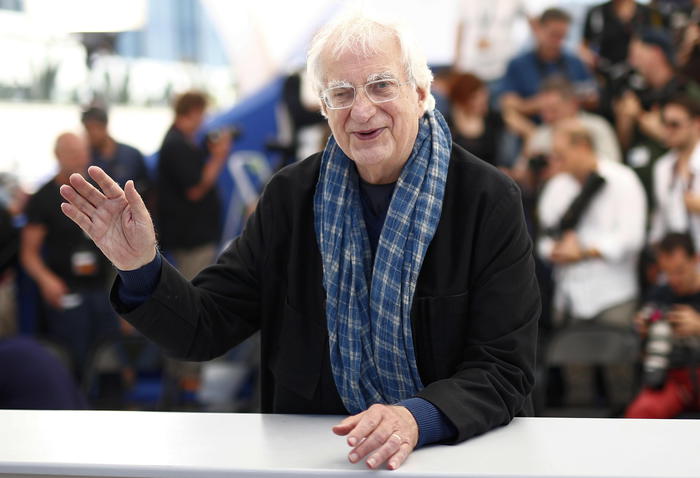It is difficult to summarize in an artist alone all the qualities that Bertrand Tavernier has brought as a dowry to the cinema, his great passion, the only love of his life alongside his wife Colo and children Niels and Tiffany.
Tavernier was first of all elegant and refined director, an author born already great as evidenced by his debut film, "The watchmaker of Saint Paul" with Philippe Noiret, written and directed in 1974 and immediately awarded in Berlin with the Silver bear.
But he was also an enlightened and independent producer, critic and essayist, film historian and keen cinephile, founder and president of the Lumière Institute in Lyon, bibliophile and mystery expert (the "polar" beloved by the French), screenwriter and communicator.
In short, a true enlightenment out of time who died today at the age of 79, one month before his next birthday.
He was born in Lyon on April 25, 1941 and has always remained faithful to his city, despite a wandering life and a recurring passion for America.
Critics of the Nouvelle Vague like Truffaut and Godard esteemed him because a passion for the great Hollywood artisans was common (Delmer Daves and Bud Boetticher were among his favorites), but for a long time they did not forgive him a deep and admired harmony for that generation of French filmmakers who had fought to free themselves from a by now exhausted school.
Despite his taste for challenge and the new, Tavernier was in fact above all a lover of memory, a high school mannerist who saw in his work the link with a luminous past and a memory to be cultivated.
His father René was a poet, writer, bibliophile and in full German occupation he founded the literary magazine "Confluences" hosting writings by the freest spirits of the time such as the anarchist Aragon and the symbolist Elouard.
At the age of six, the family moved to Paris, but at the age of 11 the boy was sent to a boarding school in Normandy and then returned to the capital again, enrolling in the prestigious Henry IV Lyceum in 1957. The teenager Tavernier befriends his schoolmate Volker Schlondorff, attended Henri Langlois at the Cinémathèque, founded the Nickelodeon cineclub in the Latin Quarter and discovered the secret treasures of American genre cinema.
He also improvises himself as a journalist to have the opportunity to interview his idols when they pass by in Paris: he will meet John Ford, John Huston, Raoul Walsh.
Jean-Pierre Melville takes him as an assistant on the set of "Leon Morin, priest" and teaches him the rudiments of technique and a moral idea of directing that he will never abandon.
Since 1961 he also goes to work with the main producer of the Nouvelle Vague, Georges de Beauregard and this allows him to rehearse behind the camera.
Over the next ten years he will earn a living as a press officer (for Stanley Kubrick among others) and screenwriter;
Riccardo Freda is his teacher to whom he will later want to pay homage by producing (and directing with him) the last film of the great Italian craftsman, "The daughter of D'Artagnan".
Since his debut in directing (in the company of his alter ego as an actor, Philippe Noiret) he allows himself to be labeled as an "eclectic" director, lover of period operas and historical melodramas, but sensitive to the various forms of genre and capable cinema, surprisingly, with a clear and cutting edge on contemporary society.
"Everything that distorts and dramatizes emotion and reality - he wrote - interests me. This is perhaps very close to the way I love to make a film: a staging based on emotion which, I hope, is never artificially translated ".
It will tell the story of monarchical and aristocratic France ("Let the party begin", "The judge and the murderer"), the current one ("Des enfants gatés" and "The bait" with which he won the Golden Bear in 1995) , the medieval spirit ("La passion Béatrice") and the futuristic dystopia ("Death in direct").
Over the years he is fascinated by the senselessness of war and, following the example of his masters, he tells it twice: "La vie et rien d'autre" (1988) and "Capitaine Conan" (1995), two of his masterpieces. .
In the wake of classic French cinema, he does not neglect sentimental and costume comedy with enchanting frescoes from "Une semaine de vacances" to "Daddy Nostalgie" to "A Sunday in the countryside", best director in Cannes, but draws on the great storytellers of noir for his more personal films: "Colpo di spugna" (shot in Africa) or "In the Electric Mist" shot in America in 2009 with which he returns after a long illness, the same that had undermined his health in recent years.
He had paid an extraordinary tribute to the America of jazz and the Paris of his youth, conducting in tandem with one of his idols, Robert Parrish, "Mississippi Blues" in 1984 and then in the 86 "Round Midnight" with music by Miles Davis.
Since the nineties, however, his prevailing passions have turned to the cinema of the past.
In 1970 he had published his first non-fiction book on "30 years of American cinema".
Twenty years later he broadens his focus on "50 years of American cinema" and then even publishes an evocative tourist guide of France through his cinema and a true encyclopedia of cinema noir and polar.
Thanks also to his impulse, the young Lumière Institute of Lyon (founded in 1982) became a great international archive and restoration reality.
He will take over as president, alongside the then young Thierry Fremaux as director, now director of the Cannes and Lyon Festivals.
In 2015 he received the Golden Lion for Lifetime Achievement.

